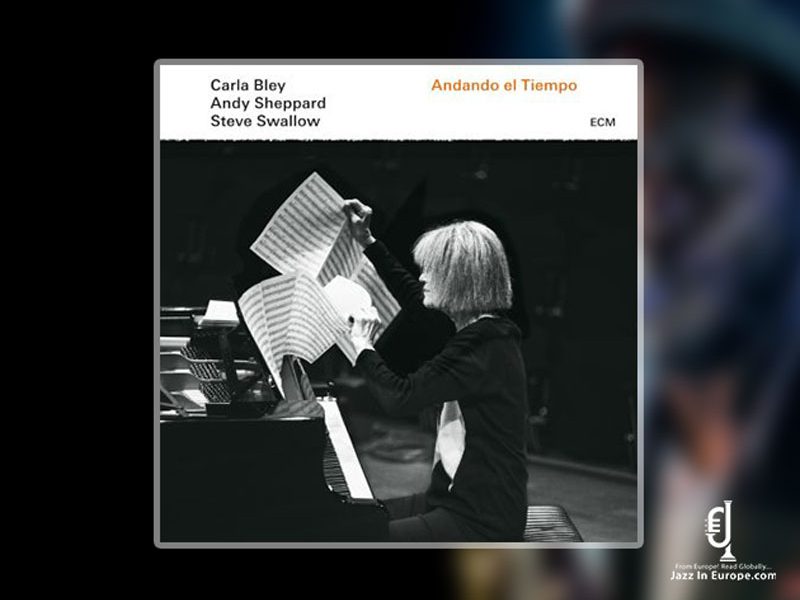

“Victor Lewis used to say, ‘I got through my whole divorce by listening to Chaka Khan,’ and we thought, wow, that’s so cool, to help somebody get through a divorce. “Steve and I just liked music that made you feel good,” Bley told Iverson. But the Carla-Steve records are less resistant to traditional jazz sensibilities than Giuffre’s, and more laid-back in their delivery, conjuring the image of Bley and Swallow quietly jamming in their living room. The LPs recalled the restrained aesthetic of the Giuffre trio in many ways: drumless and at times reminiscent of modernist classical music (Satie, Ravel, and Stravinsky in particular). Together, Carla and Steve began to frequently record duo and trio albums, including beautiful and low-stakes outings like 1988’s Duets, 1992’s Go Together, and 1994’s Songs With Legs. Her primary collaborator became her old-friend-turned-partner Steve Swallow, the bassist who had been one of the first to champion her compositions on his own early solo records and in an influential trio with Paul Bley and the clarinetist Jimmy Giuffre in the early ‘60s. She recorded with quiet combos as well as large ensembles.


There are plenty of weird anomalies, too: she once wrote an album of self-described “punk songs” and bestowed them upon Pink Floyd’s Nick Mason, who cast Robert Wyatt as his lead singer and released them as Nick Mason’s Fictitious Sports in 1981.īut in the late 1980s, Bley’s penchant for extreme density and high-concept experiments began to mellow.
#CARLA BLEY ON TWITTER SERIES#
She contributed substantially to a series of Escalator-indebted theatrical works helmed by Michael Mantler, the Austrian trumpeter and bandleader (and her second husband). Many of her most impressive achievements are hidden behind other people’s names: for instance, she composed vibraphonist Gary Burton’s 1967 psychedelic suite A Genuine Tong Funeral and arranged and co-wrote bassist Charlie Haden’s 1970 political concept album Liberation Music Orchestra. One of the most charming aspects of Carla Bley as a personality, as well as part of what makes her career so hard to wrap one’s head around, is that she wasn’t very particular about the presentation or accreditation of the material she wrote. On it, one of her most famous ‘60s tunes, “Ida Lupino,” became something that Barry White could have sung over. Bley continued in this operatic vein with 1974’s narration-driven Tropic Appetites, and while its followup-1977’s Dinner Music-was not a concept album like its predecessors, it was just as stylistically schizophrenic, citing soul, disco, bar-band blues, and ‘50s rock. Allegedly, 100 hours of tape were recorded. There is narration, a cast of characters, an arsenal of collaborators from the vanguard of the free-improv world-Don Cherry, Roswell Rudd, Paul Motian, and more-but also Linda Ronstadt and Cream’s Jack Bruce. Described in the liner notes a a “chronotransduction,” it has to be heard to be believed. Her breakout is one of the most ambitious conceptual jazz works ever written: 1971’s heady and unsettling triple-LP Escalator Over the Hill. Bley’s polyglot sensibilities and contrarian streak resulted in a disparate and often bizarre discography. She was more inspired by Motown and Joe Cocker than John Coltrane and Duke Ellington. “I liked them, but there was also what Max Gordon said about a bunch of guys screaming their heads off: ‘Call the pound.’”Īs much as the jazz of her time, Bley loved its pop music.
#CARLA BLEY ON TWITTER FREE#
“In free playing everybody played as loud as they could and as fast as they could and as high as they could,” Bley told Ethan Iverson in 2018. She cut her teeth writing tunes for radically-minded pianist Paul Bley (her husband for a few years) and co-organizing the NYC-based Jazz Composers Guild with avant-gardists like Sun Ra, Ornette Coleman, Milford Graves, and Andrew Cyrille in the early ‘60s, but Bley was always wary of free jazz, on the look out for something slightly different. Today, she ranks as one of the most revered jazz big-band writers of the post-bebop era. Starting out her musical life as a self-described “cigarette girl” at NYC’s Birdland jazz club, Bley-born Lovella May Borg in Oakland in 1938-progressed from being a shy pianist and songwriter-for-hire, to an in-demand composer and arranger, and eventually, to a visionary bandleader. Instead, the composer and pianist worked off of her own stories, following her own fiercely independent muse.
#CARLA BLEY ON TWITTER MOVIE#
Many of her most famous records sound like cues in a spy movie or some darkly comedic thriller. In an alternate universe, Carla Bley could have made a lot of money in film soundtracks.


 0 kommentar(er)
0 kommentar(er)
